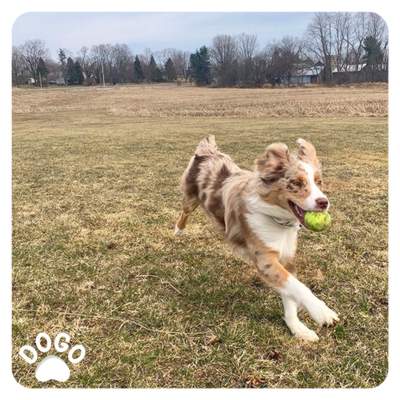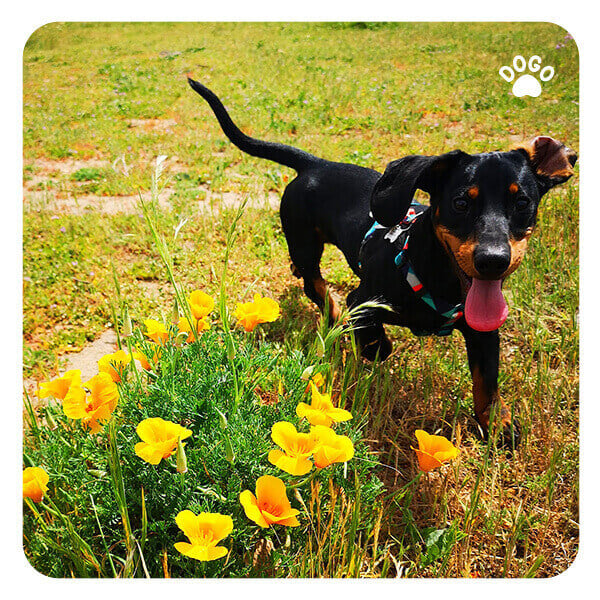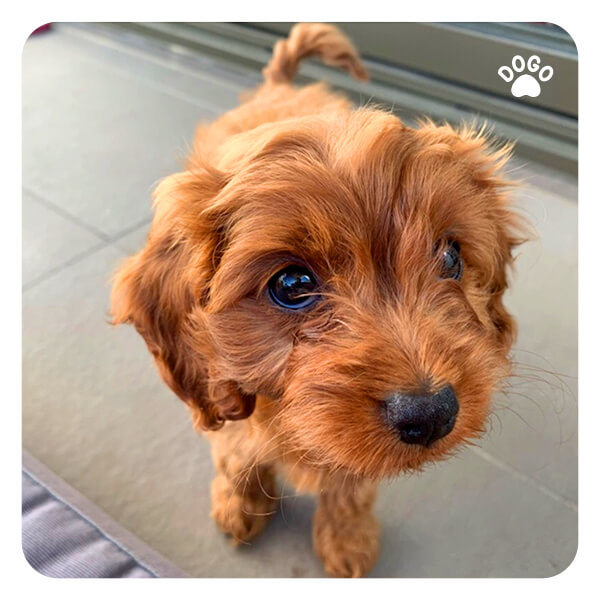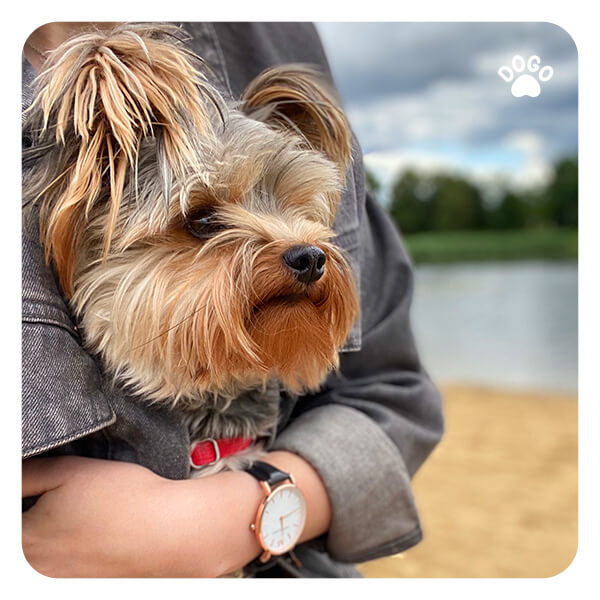Ways to Prevent Reactivity in Dogs
Post Date:
October 25, 2023
(Date Last Modified: November 13, 2025)
Reactivity in dogs describes intense, often rapid behavioral responses to specific triggers. Prevention emphasizes clear observation, safe management, veterinary assessment, and consistent training strategies.
Understanding Reactivity
Reactive behavior is an observable set of actions — such as barking, lunging, stiffening, intense staring, or rapid vocalization — that occur when a dog responds to a perceived trigger; it is distinct from purposeful aggression in intent and context, and distinct from short-lived startle responses.
Common underlying mechanisms include fear-based avoidance, frustration from barrier or leash reactivity, over-arousal when drive systems are high, and gaps in early socialization that leave the animal unprepared for specific stimuli. A practical first step is structured observation: keep a behavior log for 7–14 days to capture patterns, contexts, and the sequence of signals leading up to reactive incidents[1].
Risk factors for development include genetic predisposition to heightened reactivity, early environment and social exposures, and learning processes that reinforce reactive responses (for example, removal of a trigger when the dog reacts can inadvertently reinforce the reaction).
Identifying Triggers
Accurate trigger identification starts with objective recording: note time of day, precise location, distance and direction of the trigger, the dog’s body language before, during, and after the response, and whether any management steps changed the outcome. Use video whenever possible to replay subtle signals that are easy to miss in real time.
Distinguish direct triggers (an approaching dog or person) from distant triggers (a sound or movement across the street) and be mindful that a given stimulus can be a trigger in one context but neutral in another; prioritize the triggers that occur most often or that most reliably produce escalations when choosing where to start intervention.
Medical Assessment
Rule out or treat medical contributors before assigning a behavior-only plan: pain, endocrine disorders, vestibular or neurological disease, and sensory deficits can all increase reactivity or lower the threshold for reactive responses. When behavior changes are sudden, or when there are signs of pain or neurologic deficits, seek veterinary evaluation promptly.
When medication is appropriate as adjunctive support, common behavior-modifying drugs such as selective serotonin reuptake inhibitors are often dosed in the range of 1–2 mg/kg given once daily under veterinary supervision[2]. Any pharmacologic plan should be discussed with a veterinarian who will consider medical history, concurrent drugs, and monitoring needs.
Provide the veterinarian with a clear history: timelines, video clips, a copy of your behavior log, and notes on any changes in training, diet, or household composition. Documentation improves diagnostic accuracy and treatment planning.
Environmental Management
Reducing unplanned exposures and accidental reinforcement is central to prevention. Plan routes and timing of walks to avoid predictable high-risk windows; for public walking, choose quieter streets or times when foot traffic and other dogs are minimized. Use consistent home routines so the dog can anticipate events that previously triggered reactivity.
At home, manage startling stimuli by controlling visual and auditory access: close blinds to block passing pedestrians, use solid fencing to limit visual contact with outside dogs, and designate predictable safe zones where the dog can rest undisturbed. Predictable exposures allow training to proceed from a controlled baseline rather than from surprise-induced spikes in arousal.
Management Tools and Safety
Appropriate equipment and safety planning protect dogs and people while enabling controlled learning opportunities. Choose gear that supports both control and comfort; a front-clip or no-pull harness can reduce forward pulling, while a well-fitted head halter can give finer steering control for handler safety. Secure fencing should be inspected regularly for gaps and climb points.
- Quality leash and harness: non-elastic leash 4–6 ft for control; harness that distributes pressure without restricting breathing.
- Muzzle: use a basket-style muzzle for safe panting and drinking; introduce with desensitization before public use.
- Barrier and visual screens: temporary privacy fence panels or car crates for predictable separation during high-traffic times.
Muzzle use should be paired with careful desensitization so the dog is comfortable; initially limit exposures and observe the dog’s ability to pant and drink when muzzled, and extend durations gradually as tolerance increases — many handlers begin with sessions under 30 minutes and build from there while monitoring stress signals[1]. Have an emergency plan for escalations, including practiced procedures for calmly removing the dog from a situation and emergency contacts for a behavior-savvy veterinarian or trainer.
Basic Obedience and Impulse Control
Foundational cues give the dog alternative, reinforced behaviors that interrupt reactive sequences. Teach attention (look at handler), settle or mat behavior, leave-it, and recall in low-distraction contexts before generalizing. Work at the dog’s threshold and only increase difficulty when the dog is reliably successful at the current level.
Short, frequent training sessions support learning and reduce fatigue: aim for 5–10 minute sessions repeated 3–5 times per day during initial impulse-control training to maximize engagement without overwhelming the dog[3]. Use high-value, immediate reinforcement and vary schedule as the skill strengthens to build duration and distraction resistance.
Desensitization and Counterconditioning
Systematic desensitization pairs graded exposure to the trigger with positive experiences so the dog’s emotional response shifts over time. Create an exposure hierarchy with clearly defined steps from low-intensity, distant presentations to closer, more realistic encounters, and determine each step’s success criteria before proceeding.
Always work below threshold where the dog remains responsive and can accept treats; reinforce the dog for calm attention and gradually change the contingency so the presence of the trigger predicts something good. Measure progress with objective metrics such as the likelihood of a reactive behavior per exposure and the distance at which the dog remains below threshold; use those metrics to decide when to proceed or return to a previous step.
Stress Reduction and Enrichment
Lowering baseline stress and providing appropriate outlets decreases the frequency and intensity of reactive incidents. Regular physical activity suited to the dog’s age and breed helps regulate arousal: many dogs benefit from at least 30 minutes to 2 hours of exercise daily, adjusted for size, health, and energy level[4].
Mental enrichment — puzzle feeders, nose work, short training games — reduces idle arousal and provides constructive focus. Maintain consistent daily routines for feeding, exercise, and rest; predictable schedules support a stable physiological baseline. Calming supports such as structured massage, pheromone diffusers, and evidence-based supplements can help in some cases but should complement, not replace, training and environmental management.
Owner Handling and Communication
Handler behavior directly influences a dog’s emotional state. Learn to read early warning signs (subtle lip licking, yawning, turning away, stiffening, whale eye) and intervene at the earliest cue rather than waiting for a full-blown reaction. Timing matters: reward calm or alternative behaviors immediately to mark what you want the dog to repeat.
Adopt calm, predictable leadership without punitive measures that can escalate fear or aggression. Ensure all household members use consistent cues, rewards, and handling techniques so rules and expectations are uniform across contexts.
Professional Help and Long-Term Planning
Complex or entrenched reactivity often benefits from a coordinated plan involving a veterinarian, a certified trainer, and, when needed, a board-certified veterinary behaviorist or an applied animal behaviorist. Seek a behavior-savvy veterinarian for medical evaluation and to discuss adjunctive medication if indicated.
Develop stepwise training plans with measurable goals (for example: dog remains below threshold and looks to handler on approach at 30 ft for five of seven supervised trials) and set realistic timelines; some cases see measurable improvement within weeks, while others require many months for durable change. Plan for maintenance by periodically reintroducing controlled exposures and refreshers so learned calm behaviors remain reliable and relapse risk is minimized.
| Tool | Primary use | Implementation note |
|---|---|---|
| Front-clip harness | Reduce pulling and redirect forward momentum | Use with short leash for controlled walks |
| Basket muzzle | Safety during training or veterinary visits | Introduce with positive pairing before public use |
| Crate or safe zone | Provide predictable retreat and rest area | Keep comfortable and accessible, not punitive |
| Visual screen | Limit outside visual triggers at home | Temporary panels or privacy slats for fencing |




